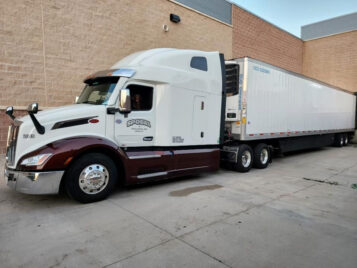In the bustling world of logistics, where every second counts, flexibility emerges as a key player in ensuring efficiency and customer satisfaction. As businesses continue to adapt to evolving market demands, the ability to pivot quickly has never been more vital. This blog post dives into the significance of flexibility in logistics, especially within the trucking industry, and how it can transform challenges into opportunities.
When we talk about flexibility in logistics, we don’t just mean the ability to change routes on a whim. We’re referring to a comprehensive approach that encompasses everything from real-time tracking and load optimization to dynamic scheduling and collaborative partnerships. The logistics landscape is an intricate web, and flexibility is the thread that holds it all together. See more about how Spoerl Trucking can help you streamline your logistics here:
One of the most significant advantages of a flexible logistics system is the capacity to respond to unforeseen circumstances. Whether it’s a sudden spike in demand or an unexpected road closure, having a flexible strategy allows trucking companies to adapt swiftly. Imagine a fleet manager who receives a last-minute order for perishable goods. With the right tools in place, they can reroute trucks, optimize delivery schedules, and ensure that goods reach their destination fresh and on time. This agility not only satisfies customers but also enhances a company’s reputation in a competitive marketplace.
Technological advancements have played a pivotal role in enhancing flexibility. The implementation of advanced logistics software and GPS tracking systems has revolutionized the way companies manage their operations. These tools provide real-time data, allowing for accurate decision-making and proactive problem-solving. For instance, predictive analytics can anticipate traffic patterns, enabling logistics providers to optimize routes and minimize delays. This level of foresight is invaluable, turning potential roadblocks into smooth sailing.
Moreover, flexibility in logistics fosters stronger relationships between businesses and their partners. Collaborative logistics, where companies share resources and information, can lead to cost savings and improved service delivery. For example, a trucking company may partner with a warehouse provider to utilize shared space, allowing for quicker turnaround times and reduced overhead costs. This synergy not only enhances operational efficiency but also cultivates a culture of cooperation that benefits everyone involved.
In conclusion, flexibility in logistics is not just a buzzword; it’s a fundamental principle that can make or break a business in the trucking industry. By embracing flexibility, companies can navigate challenges with ease, enhance customer satisfaction, and build lasting partnerships. As we move forward in this ever-evolving landscape, the ability to adapt will undoubtedly be the cornerstone of success.



